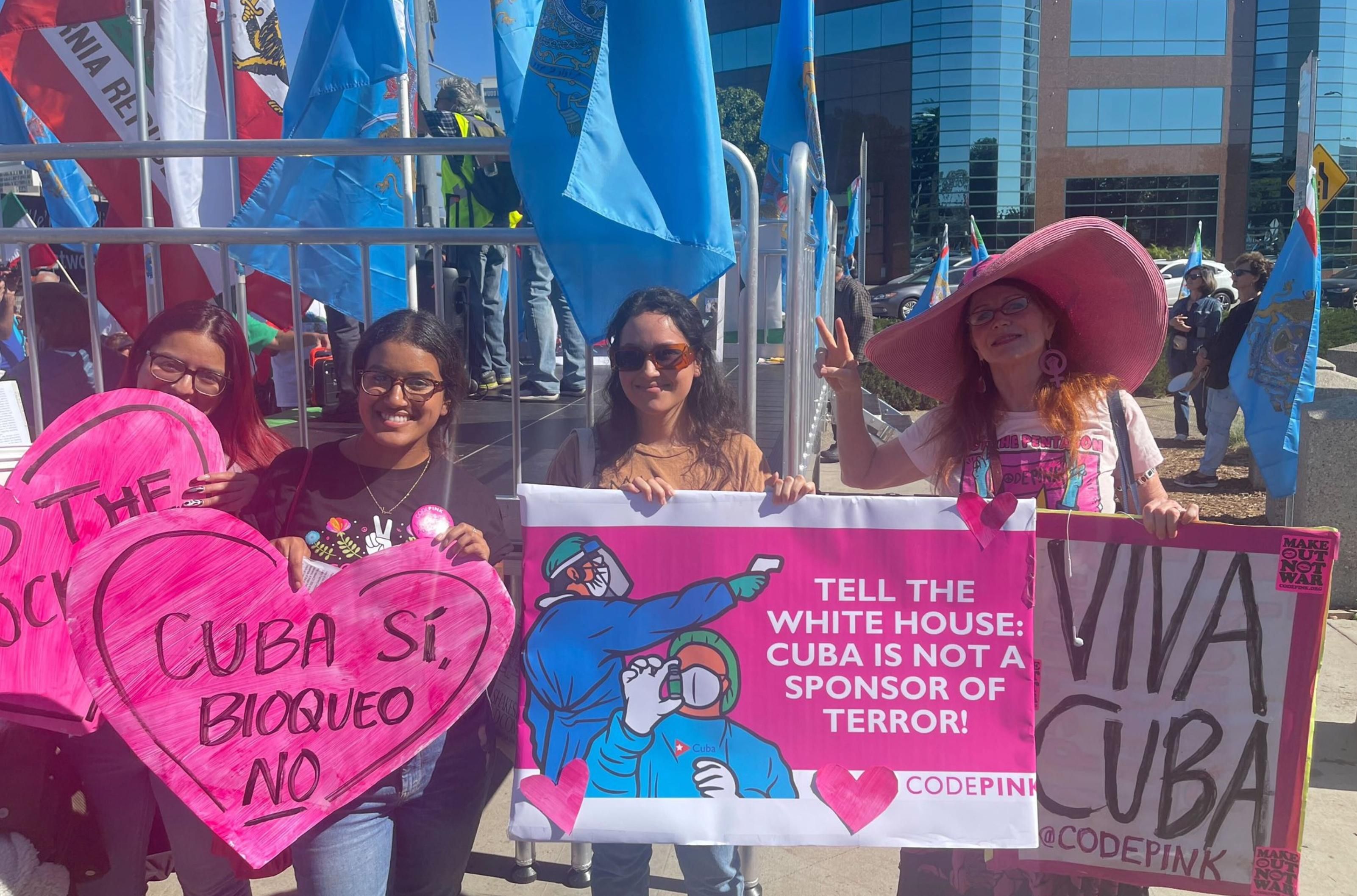US, Israel Only 'No' Votes as UN Members Condemn Cuba Embargo for 30th Straight Year
"Today's U.N. vote clearly shows that the global community is calling on the U.S. to lift its brutal embargo on Cuba," CodePink co-founder Medea Benjamin asserted.
Peace advocates on Thursday said that the near-unanimous vote by United Nations member states to demand an end to the U.S. economic embargo of Cuba underscores the imperative for the Biden administration to lift the crippling 60-year blockade.
"What would Cuba be like today, if the blockade didn't hinder its development?"
For the 30th straight year, U.N. General Assembly members voted in favor of a Cuban resolution condemning the embargo, first enacted during the administration of then-President John F. Kennedy, who according to close confidant and historian Arthur M. Schlesinger Jr., wanted to unleash "the terrors of the Earth" on Cuba following Fidel Castro's successful overthrow of a brutal U.S.-backed dictatorship.
Thursday's vote was 185-2, with only the United States and Israel dissenting, and Ukraine and Brazil abstaining.
"The Biden administration talks about the need for a rules-based international order. Today's U.N. vote clearly shows that the global community is calling on the U.S. to lift its brutal embargo on Cuba," CodePink co-founder Medea Benjamin said in a statement.
Benjamin added that U.S. President Joe Biden "should respect global opinion" and return to former President Barack Obama's "policy of normalizing relations with Cuba."
Manolo De Los Santos, co-executive chair of the People's Forum, wondered, "What would Cuba be like today, if the blockade didn't hinder its development?"
"It is impossible to quantify the pain generated by power cuts, long queues to purchase food, the obstacles to the life projects of families, particularly young people," he added. "Cuba has a right to live!"
Speaking before the U.N. General Assembly Thursday, Cuban Minister of Foreign Affairs Bruno Rodríguez Parrilla noted that "more than 80% of the current Cuban population was born under the blockade," which he called a "deliberate act of economic war" akin to "a permanent pandemic, a constant hurricane."
Rodríguez said that since then-President Donald Trump rolled back most of the reforms set in motion by Obama, the United States "has escalated the siege around our country, taking it to an even crueler and more inhuman dimension, with the purpose of deliberately inflicting the biggest possible damage on Cuban families."
Taking aim at Biden, Rodríguez added that "the current U.S. administration does not have a policy of its own toward Cuba. It acts out of inertia and continues the inhuman policy of maximum pressure instituted during the presidency of Donald Trump."
Rodríguez said the embargo has cost Cuba more than $6.3 billion during the first 14 months of the Biden administration, or more than $15 million per day. In 2018 a United Nations commission estimated the total cost to the Cuban economy of the 60-year blockade was at least $130 billion.
Members of CodePink plan to rally against the embargo Thursday afternoon in San Francisco. This follows CodePink protests to #LetCubaLive in cities including New York, Los Angeles, Chicago, and Washington, D.C. over the past several days.
CodePink is set to cap a week of action Saturday by joining with the Cuban-American group Puentes de Amor to send a plane loaded with 8.5 tons of food and medicines to the besieged island.
“Unfortunately," said CodePink Latin American coordinator Samantha Wherry, the shipment "represents a tiny gesture compared to the billions of dollars of harm caused by the U.S. blockade."
The peace activists have three demands: An end to the U.S. blockade, lifting of all travel and economic restrictions on Cuba, and removal of Cuba from the U.S. list of state sponsors of terrorism.
Successive U.S. administrations backed a decadeslong campaign of exile terrorism against Cuba, attempted subversion, failed assassination attempts, economic warfare, and covert operations large and small in a fruitless policy of regime change.
Meanwhile, a dozen U.S. administrations have come and gone since the triumph of the Cuban revolution in 1959.



0 Comments:
Post a Comment
Subscribe to Post Comments [Atom]
<< Home